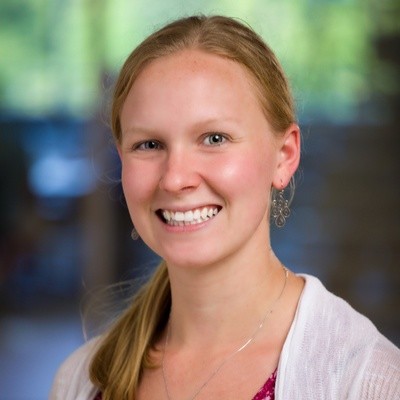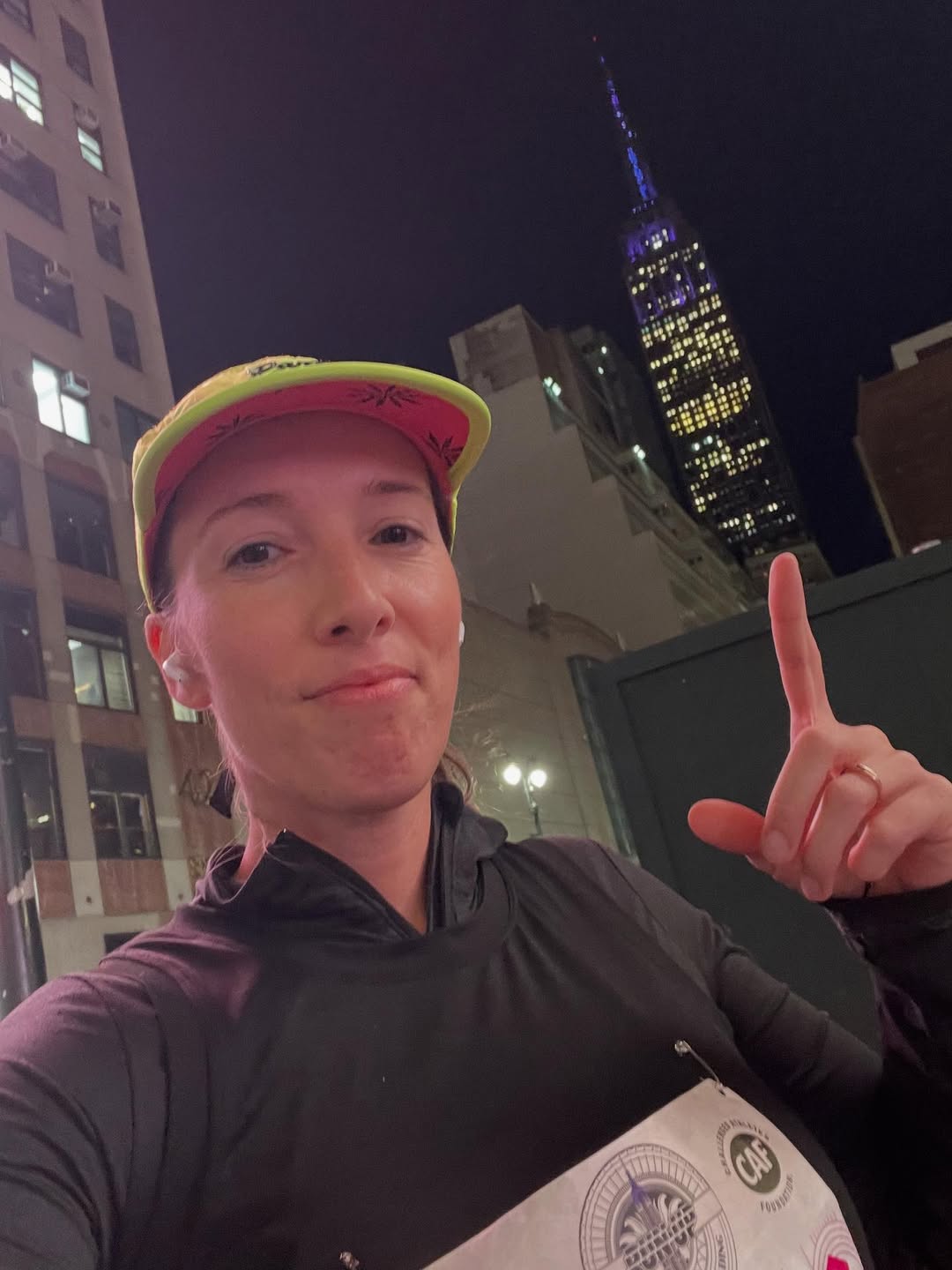
Dr. Erin Wesley, of University of Minnesota Twin Cities, is a 2022 recipient of OCRA’s Mentored Investigator Grant. With her project, “Impact of Cytomegalovirus and Inflammation on NK Cells in Ovarian Cancer,” Dr. Wesley is working to better understand why a group of patients who were previously infected with a particular virus and had low levels of inflammation experienced better outcomes than those previously infected with the same virus, and had high levels of inflammation — and how this information may translate into more effective treatments for all.
Dr. Wesley’s grant was made possible in part by a generous donation from The Dorow Family, Kicking Cancer One Dance at a Time, in honor of Mary Lynn Dorow.
OCRA grantees are making progress every day toward better prevention, treatments, and a cure. Make your year-end gift today to support future lifesaving discoveries.
What initially sparked your interest in science?
A college course in immunology truly sparked my interest in science and in the field of immunotherapy. The dynamics of the immune system during disease and the interplay of positive and negative signals fascinates me.
What drew you to the field of ovarian cancer research?
In 2014, my grandmother’s battle with ovarian cancer ended. Although I will never be able to help my grandmother, I have since dedicated my career to research that will someday give others a better opportunity to enjoy a long life with friends and family.
Can you explain your research project?
My research aims to identify how to improve patient survival by maximizing natural killer (NK) cell therapies in the treatment of ovarian cancer. Two factors that I will focus on is the impact that cytomegalovirus (CMV) and inflammation have on the immune system and how they impact ovarian cancer. CMV is a highly prevalent herpes virus that infects over 50% of the population.
We recently published findings that women with advanced stage ovarian cancer (OC) had significantly better overall survival when they had evidence of prior CMV infection with low levels of inflammation (89 months) compared to patients that had a prior CMV infection with high levels of inflammation (31 months). In addition to our previous work, studies on a specific subset of NK cells, known as adaptive NK cells, have been shown to increase in cell number, be long-lived and have enhanced killing in CMV-positive individuals. These cells are thought to contribute to cancer control. Furthermore, we have data showing significantly increased numbers of adaptive NK cells in both the blood and ascites of women with ovarian cancer who are positive for CMV compared to those who are CMV-negative. This data supports our hypothesis that CMV reactivation in the right setting may provide increased ability to fight ovarian cancer.
We propose to define the role that CMV and inflammation play in the survival of ovarian cancer patients by determining how these factors affect the development of adaptive NK cells. Our goal is to evaluate serum and ascites in 51 high-grade serous ovarian cancer patients, previously collected at the time of surgery, for the presence of adaptive NK cells to determine if these cells improve patient survival outcomes. The central hypothesis is that prior CMV infection in the setting of low inflammation may improve patient survival by increasing adaptive NK cells that have an enhanced ability to kill ovarian cancer. Confirmation of the hypothesis will provide an innovative approach to manipulating the immune system with the goal of increasing survival for women with ovarian cancer. Our findings are expected to have a significant impact on the treatment strategies for women with this disease and will provide insight into strategies such as drugs that target inflammation or viruses that could be employed at the time of surgery or over time to improve the survival of women living with ovarian cancer.
What motivates you to persist in your research?
Ovarian cancer research moves forward because of the patients, families and medical staff who battle with it every day. Attending conferences and hearing patients speak about their hopes and dreams for the future inspires me to keep pushing the boundaries of ovarian cancer research.
What is your hope for the field of ovarian cancer research?
My hope for ovarian cancer research is finding better early detection methods to improve patient outcomes and identifying key targets that provide long lasting benefits for women with ovarian cancer.
If you had the opportunity to personally thank someone from the OCRA community who supported your work, what would you say?
I am honored to say thank you for the funding support and the opportunity to be able to contribute like so many before me to move the field of ovarian cancer forward.
See more OCRA-funded research projects focused on immunotherapy.


